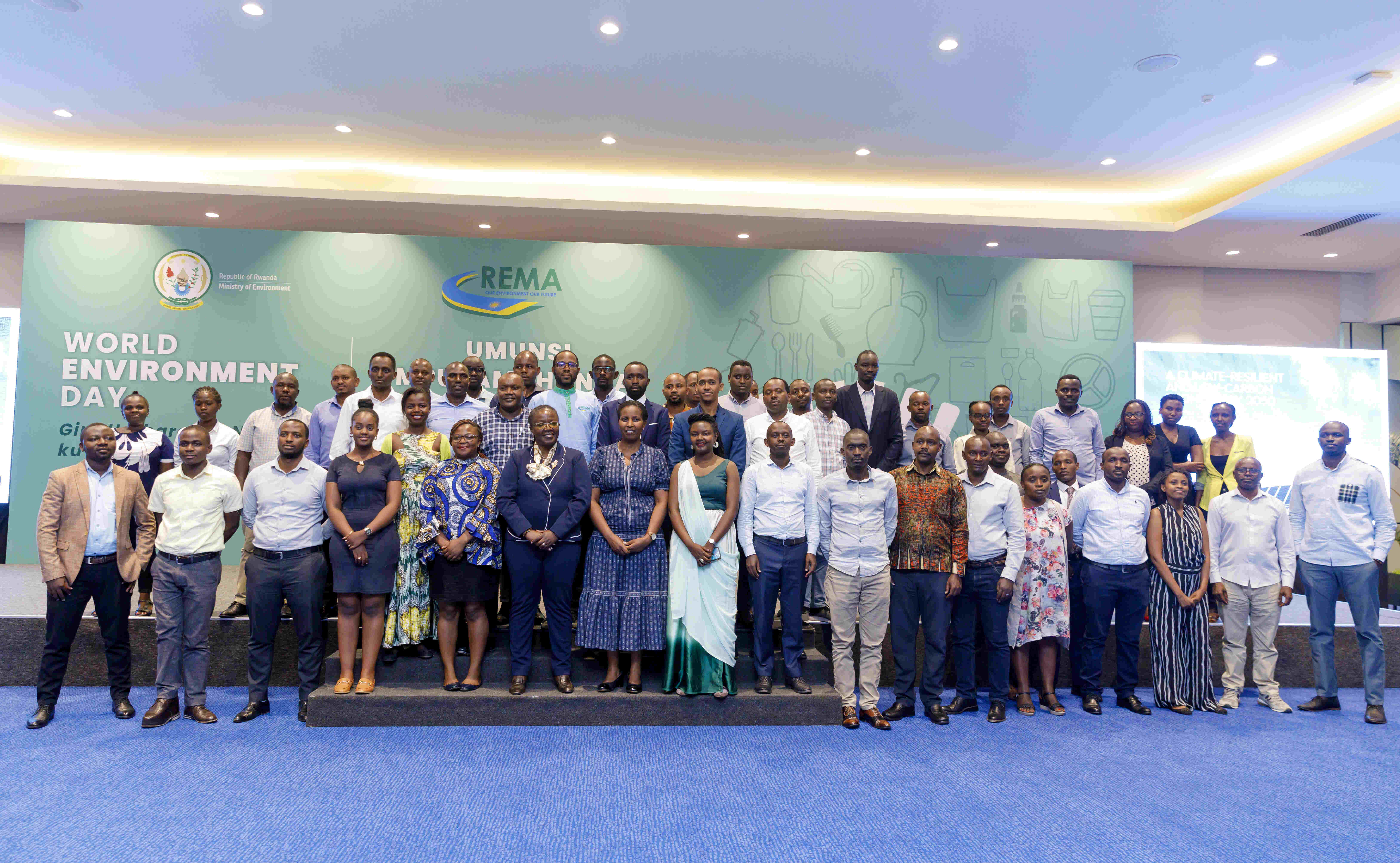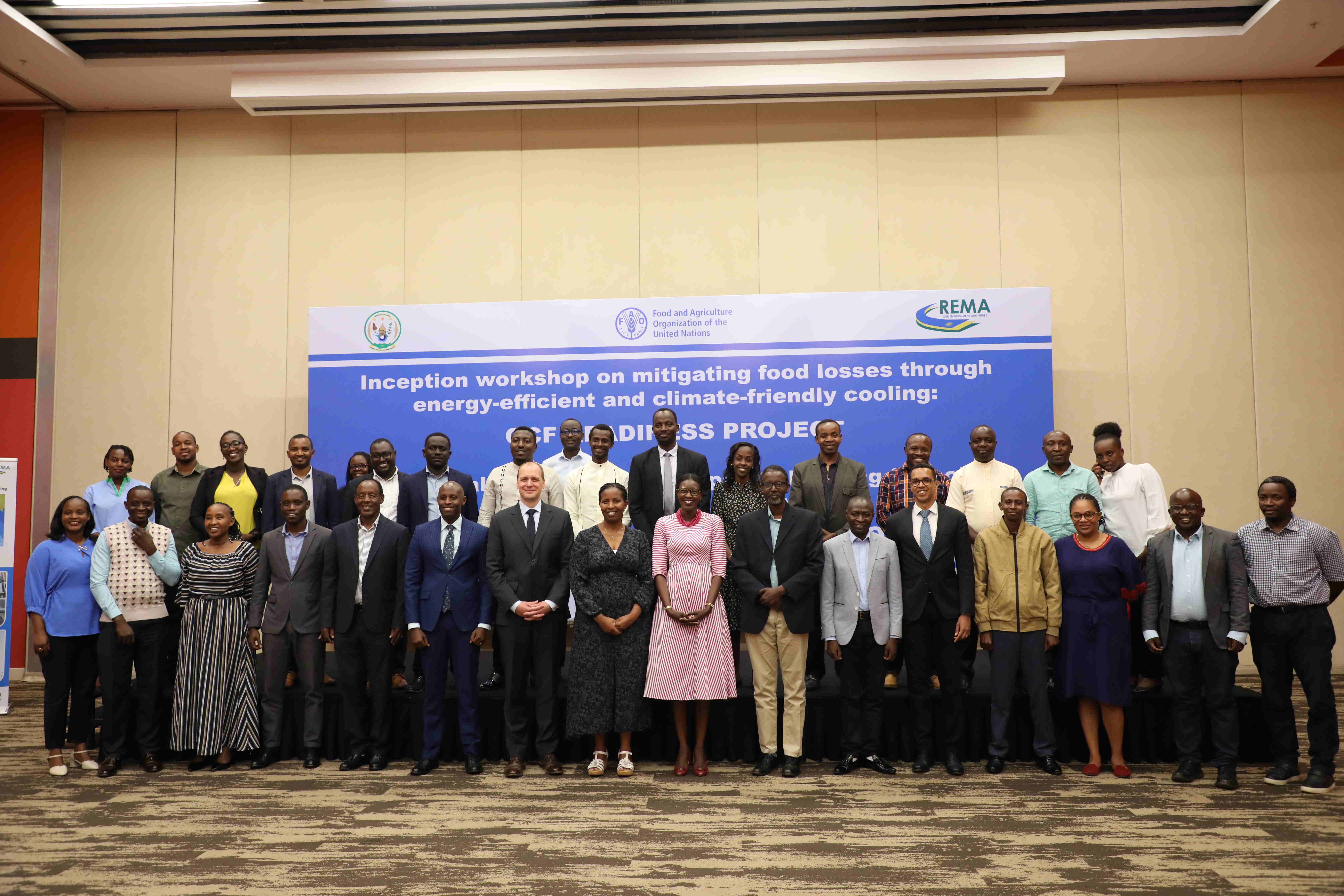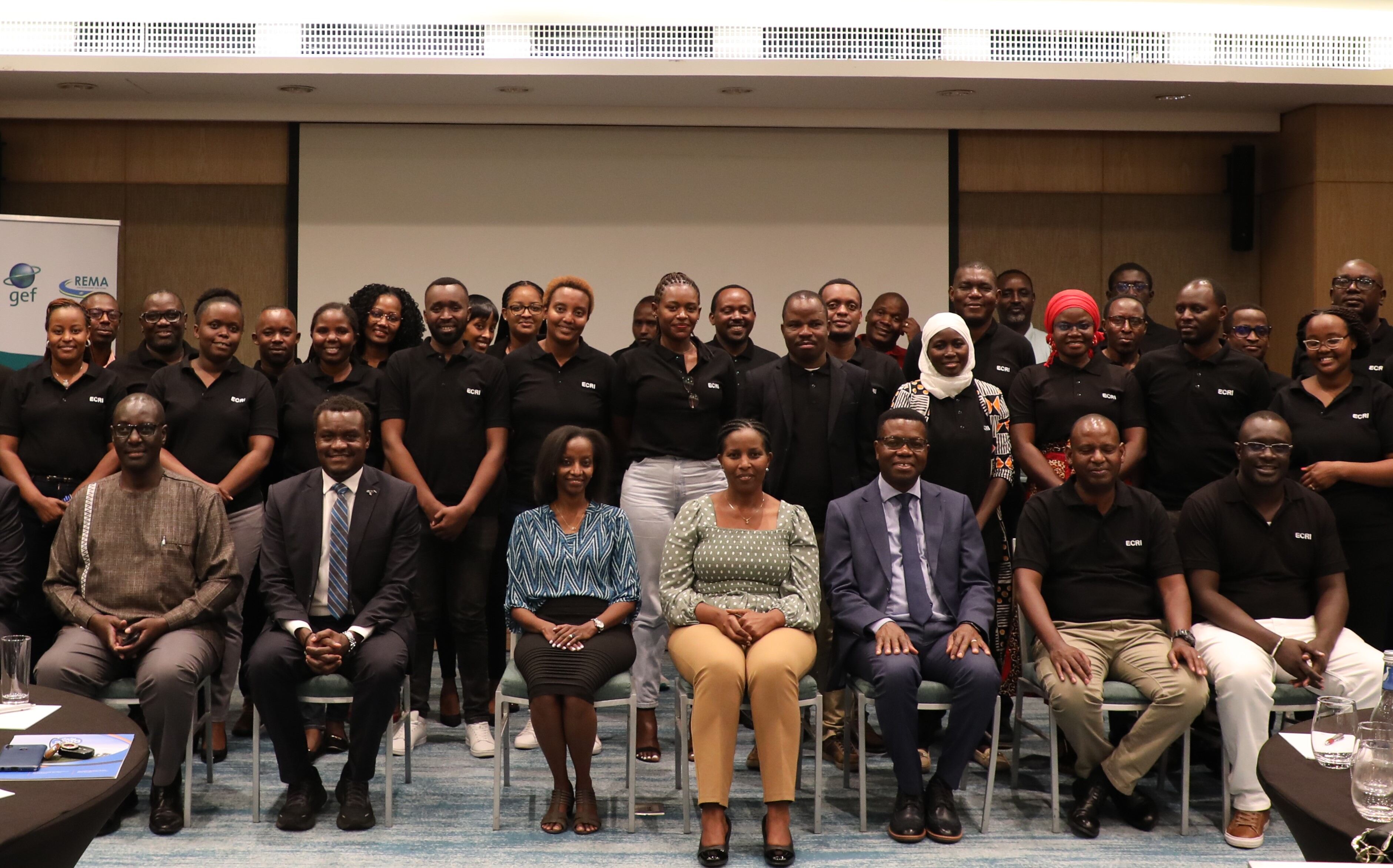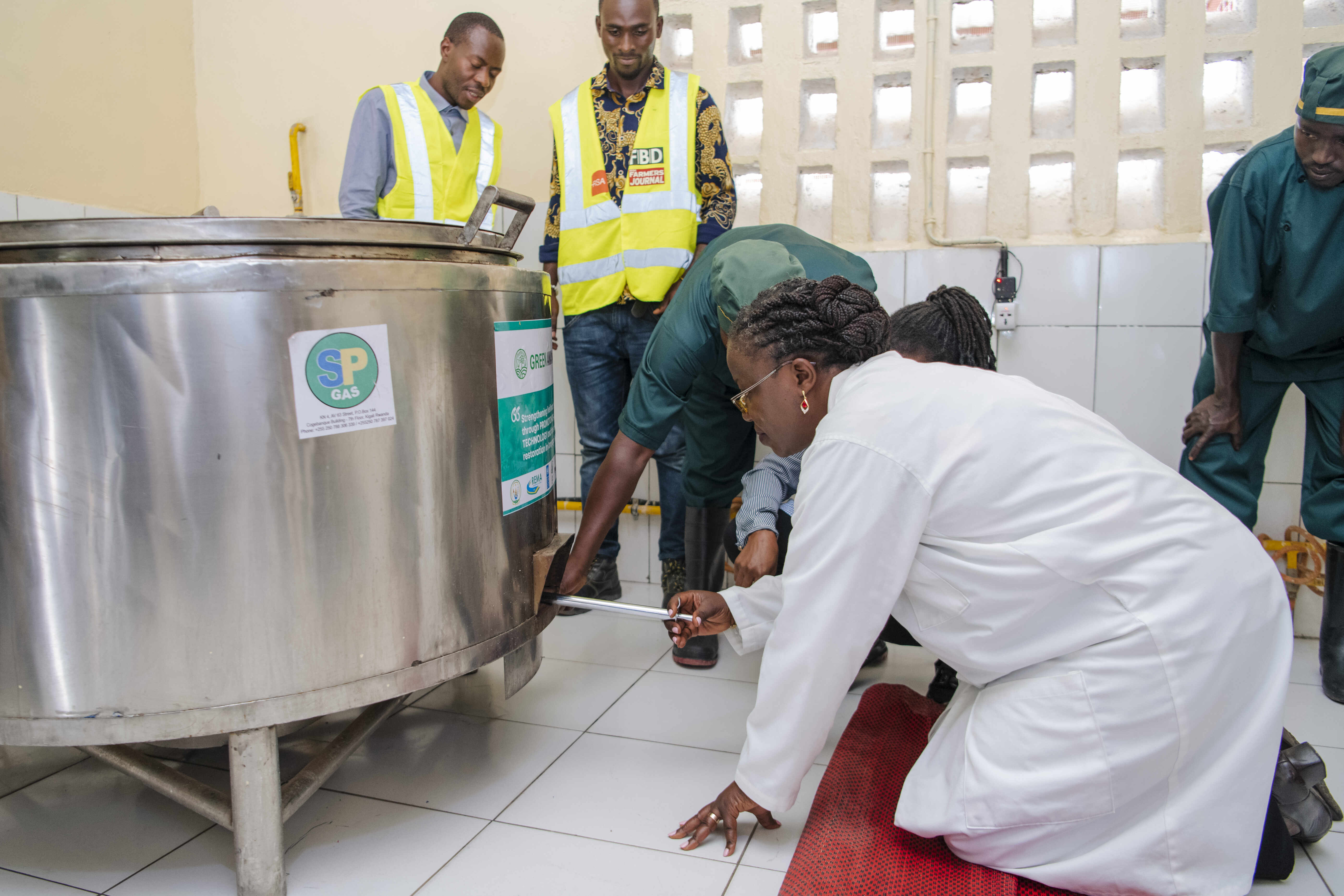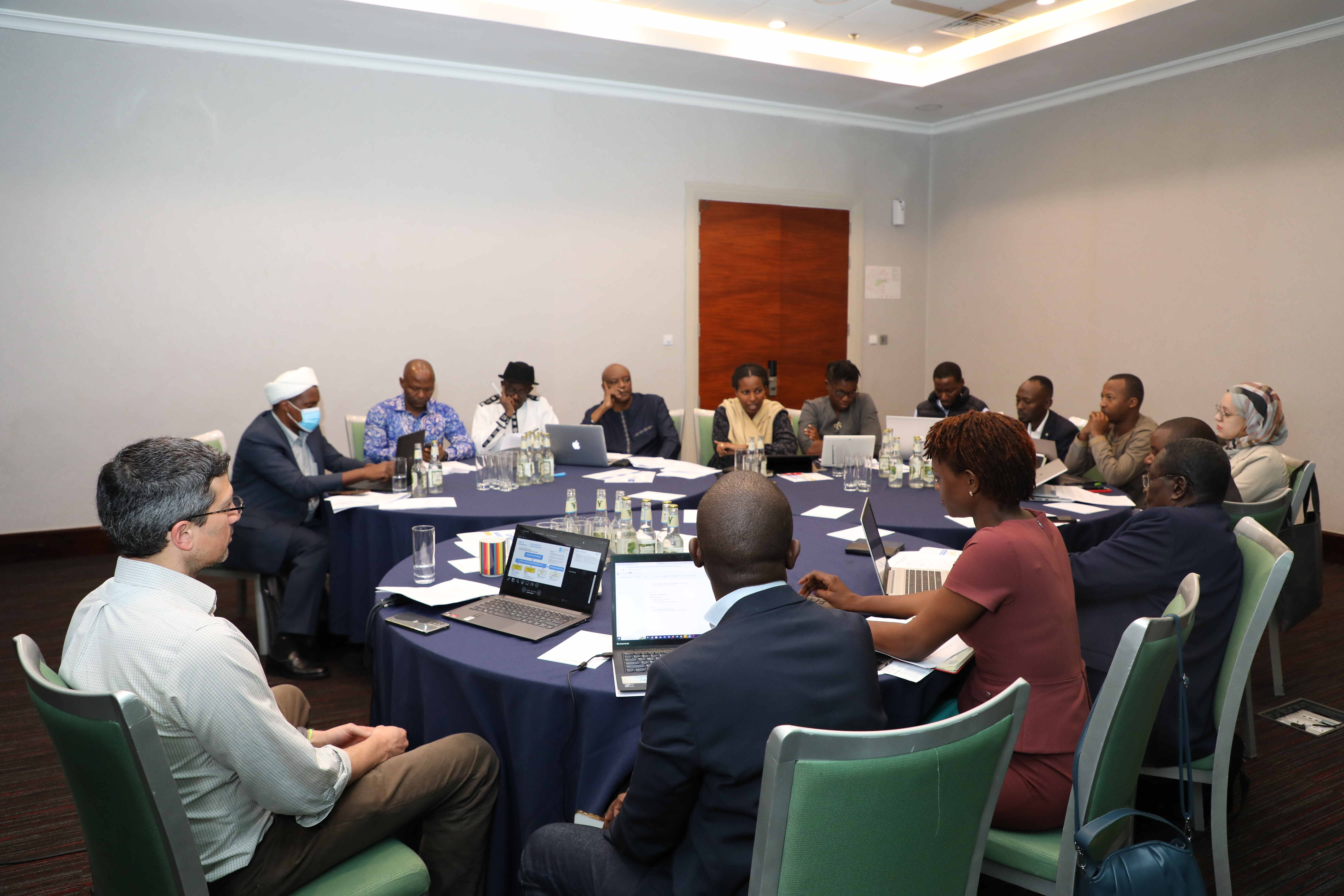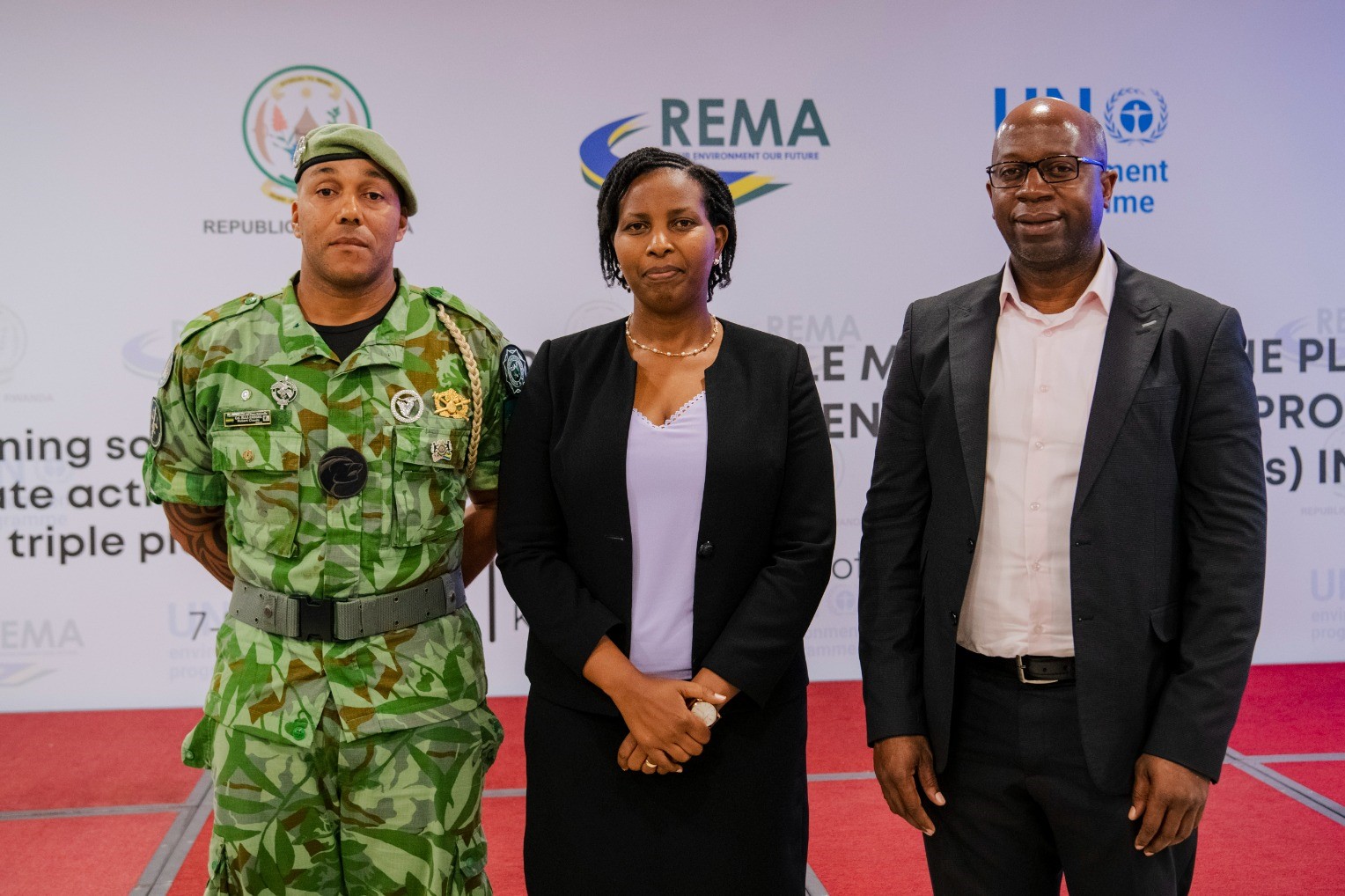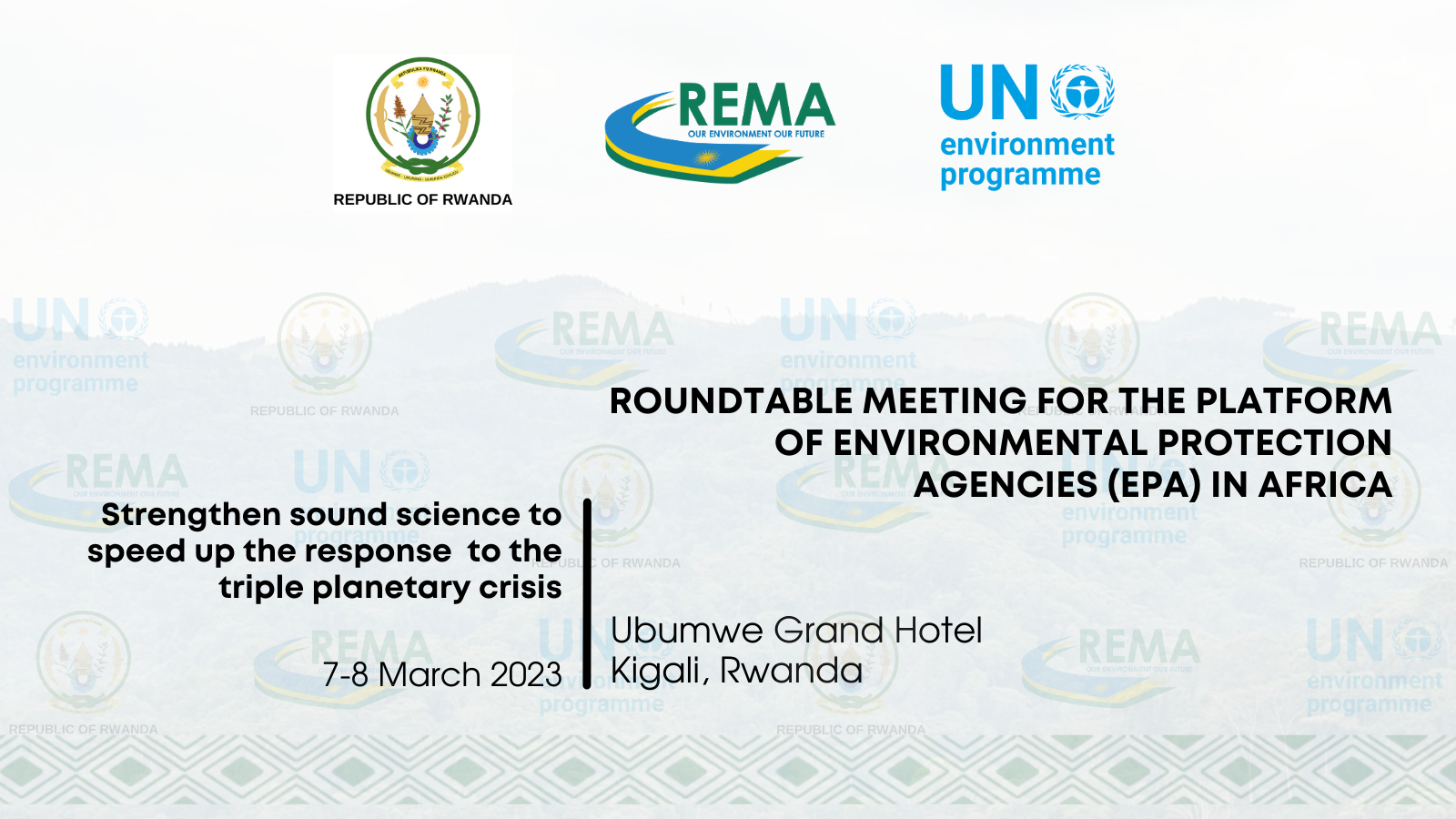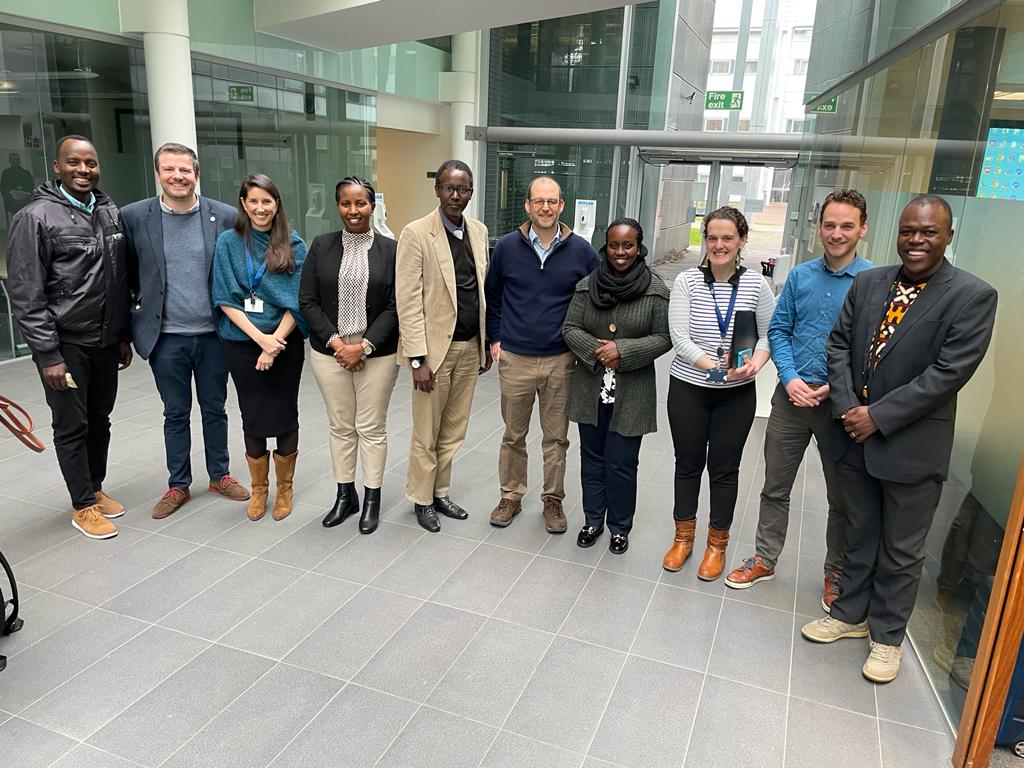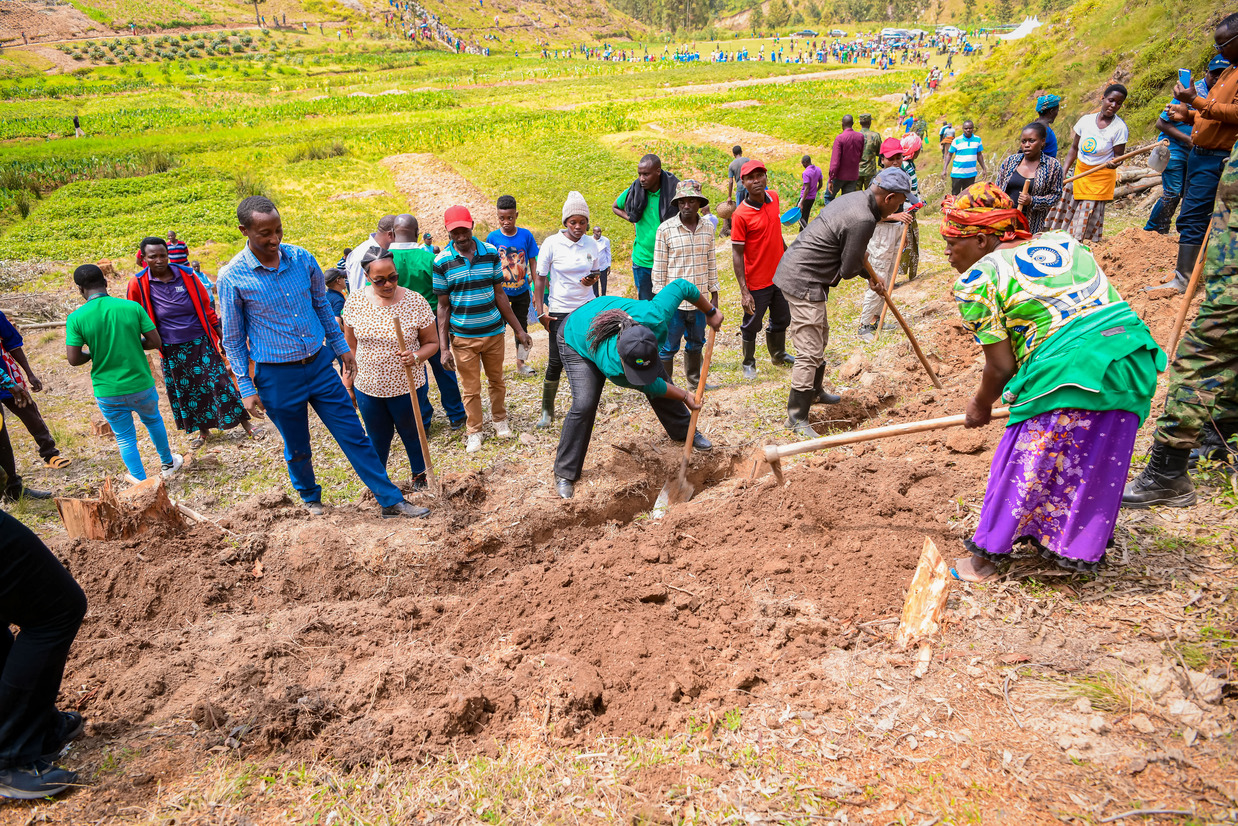
Rwanda launches new initiative to advance climate change adaptation
The Rwanda Environment Management Authority (REMA) and the United Nations Development Programme (UNDP) have today launched the “Landscape Approach to Climate Proof the Rural Settlements Project – a Global Environment Facility (GEF) funded Project – to advance climate change adaptation initiatives.
The six-year initiative will contribute to the implementation of the National Strategy for Transformation (NST1) by not only putting Rwanda’s Rural Settlement Programme (Imidugudu) on a climate-resilient pathway, but also secure the programme’s development gains in the face of uncertainties from climate change, and contribute to the country’s recovery from the impacts of COVID-19.
The USD 8,855,638 project will promote nature-based solutions and biodiversity protection by controlling erosion on hillsides, planting agroforestry trees, planting forests and protecting riverbanks.
The project will also strengthen gender equality in the process of climate proofing the Imidugudu and build the resilience of the most vulnerable residents through climate smart agriculture and diversification of livestock systems, which will increase land productivity and diversify sources of household incomes.
“This project will build climate resilience for communities in Gakenke and Kirehe and improve livelihoods by creating green jobs and distributing livestock to vulnerable residents. We encourage communities in the project intervention zones to actively contribute to its implementation and take advantage of the opportunities this project brings,” said Juliet Kabera, Director General, Rwanda Environment Management Authority.
The Landscape Approach to Climate Proof the Rural Settlements Project will cover 191 villages in Gakenke and Kirehe districts, providing improved dwellings and managing landscapes with improved ecosystems services, among many other activities.
“We can’t choose between healthy ecosystems and the wealth of society! With the Government of Rwanda, UNDP has opted to promote climate proof rural settlement approach to increase the adaptive capacity of communities and ecosystems to climate change” said Maxwell Gomera, UNDP Resident Representative.
The Landscape Approach to Climate Proof the Rural Settlements Project will be implemented by REMA in partnership with Meteo Rwanda, Rwanda Housing Authority, the Rwanda Agriculture Board (RAB) and Gakenke and Kirehe districts with support of the GEF through UNDP.
“You don’t need to be a biologist to save the planet! Environmental protection and restoration is not just a matter of natural sciences. If we continue to treat ‘the environment’ separately from ‘the economy,’ our time left to act is going to slip away. There is a role for everyone to achieve carbon neutrality in the sustainability effort” said Carlos Manuel Rodriguez, CEO and Chairperson, Global Environment Facility
Rwanda is undertaking border-to-border landscape and ecosystem restoration under the Bonn Challenge. All of these initiatives are in line with Rwanda’s commitment to implement international commitments in areas of climate change and build a climate resilient country by 2050.
Key Project Facts
- Around 23,560 hectares will be restored to build a climate-resilient pathway for Rwanda’s Rural Settlement Programme
- Around 56,000 people (of whom 50% will be women) will directly benefit from the project within its six years of implementation
- 15,000 green jobs will be created through ecosystem restoration and development of green rural settlement.
- The project will develop and construct basic infrastructures including 500 houses, supply of rainwater harvesting tanks, contribute to Girinka Programme, distribute cookstoves and finance income generating activities
- The project will adopt climate smart agricultural practices and more effective utilization of existing value chains, thus increasing land productivity, food security and incomes
Topics
More posts
RWANDA MARKS WORLD ENVIRONMENT DAY AFTER WEEKLONG CAMPAIGN PROMOTING SOLUTIONS TO PLASTIC POLLUTION
Rwanda has on June 5, 2023 joined the rest of the World to mark the World Environment Day (WED 2023), which is marked with the theme Beat Plastic…
Rwanda and partners launch two projects to advance energy efficiency and sustainable cooling
The Government of Rwanda, through the Rwanda Environment Management Authority (REMA), the Food and Agriculture Organization (FAO) and the Green…
REMA launches the Evidence-based Climate Reporting Initiative to advance climate research and reporting
The Rwanda Environment Management Authority (REMA) in collaboration with the African Institute of Mathematical Sciences (AIMS) have on May 19, 2023…
National Ozone Officers meet in Kigali to discuss the implementation of Montreal Protocol and its Kigali Amendment
The Rwanda Environment Management Authority (REMA) in collaboration with the United Nations Environment Programme (UNEP)’s OzonAction has organized a…
Minister Mujawamariya officiates the use of LPG donated to 20 schools by REMA through Green Amayaga Project
The Minister of Environment, Dr. Jeanne d’Arc Mujawamariya has on 3rd May 2023 launched the use of Liquefied Petroleum Gas (LPG) for bulk cooking in…
Delegates from across Africa meet in Kigali to Develop Priorities and Strategies for International Legally Binding Instrument to End Plastic Pollution
The Rwanda Environment Management Authority (REMA), in collaboration with the Environmental Investigation Agency (EIA) and the Center for…
Rwanda elected to chair Platform of Environmental Protection Agencies in Africa
The first-ever roundtable meeting of Heads of Environmental Protection Agencies and Directors of Environment in Africa (EPAs) has elected Rwanda to…
Rwanda to host African Heads of Environmental Protection Agencies to discuss common environmental challenges
Rwanda will from 7–8 March 2023 host the first meeting of the Heads of Environment Protection Agencies and Directors of Environment in Africa (EPAs).
…Delegates from Rwanda conduct a strategic tour in UK to pave the way for the operationalization of ACES
Rwandan Delegates and the Africa Centre of Africa Centre of Excellence for Sustainable Cooling and Cold-Chain (ACES) Project team are participating in…
